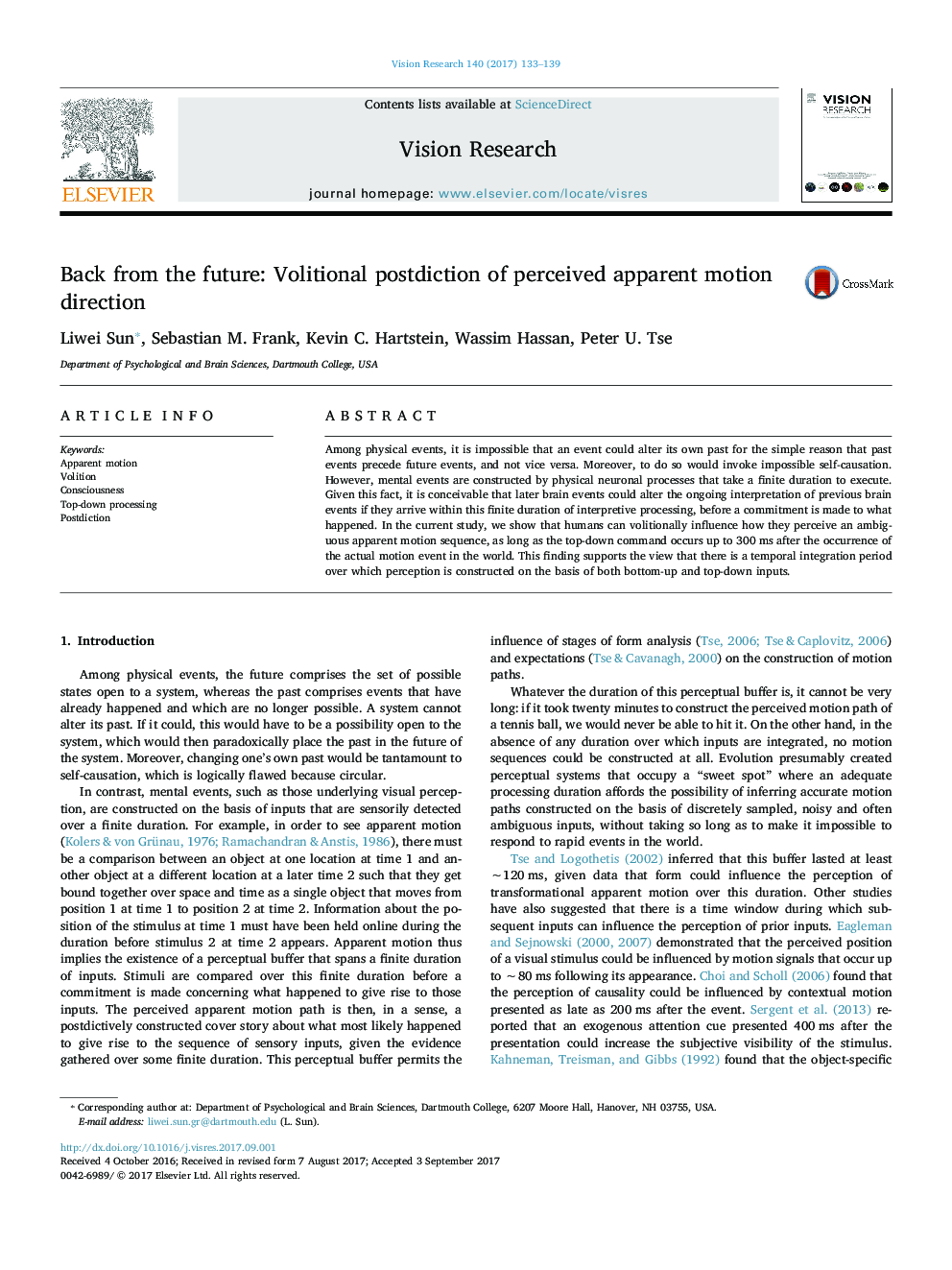| Article ID | Journal | Published Year | Pages | File Type |
|---|---|---|---|---|
| 5705833 | Vision Research | 2017 | 7 Pages |
Abstract
Among physical events, it is impossible that an event could alter its own past for the simple reason that past events precede future events, and not vice versa. Moreover, to do so would invoke impossible self-causation. However, mental events are constructed by physical neuronal processes that take a finite duration to execute. Given this fact, it is conceivable that later brain events could alter the ongoing interpretation of previous brain events if they arrive within this finite duration of interpretive processing, before a commitment is made to what happened. In the current study, we show that humans can volitionally influence how they perceive an ambiguous apparent motion sequence, as long as the top-down command occurs up to 300Â ms after the occurrence of the actual motion event in the world. This finding supports the view that there is a temporal integration period over which perception is constructed on the basis of both bottom-up and top-down inputs.
Related Topics
Life Sciences
Neuroscience
Sensory Systems
Authors
Liwei Sun, Sebastian M. Frank, Kevin C. Hartstein, Wassim Hassan, Peter U. Tse,
